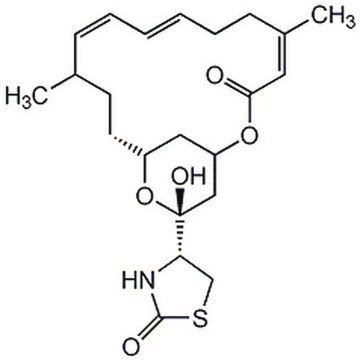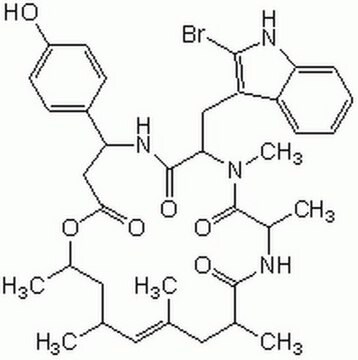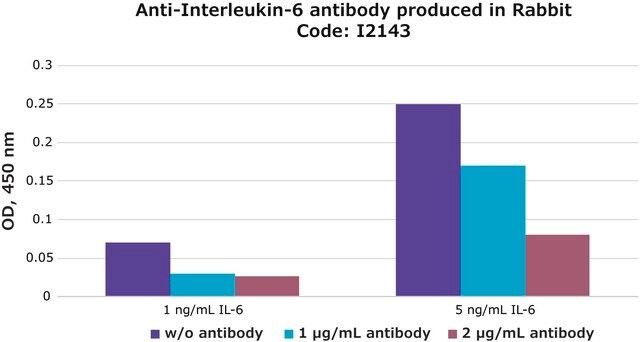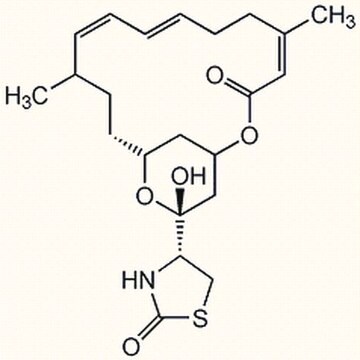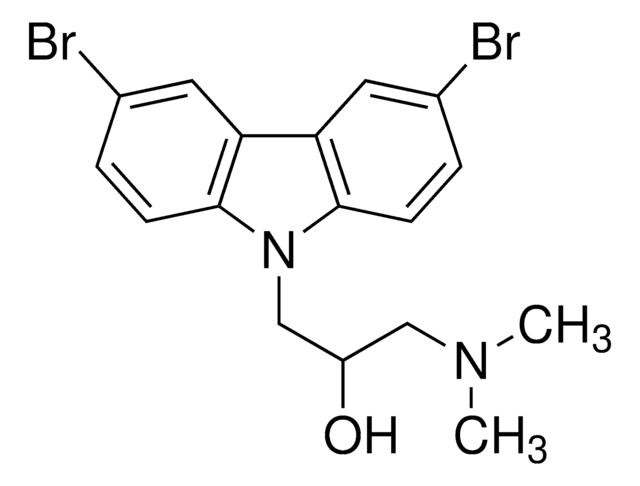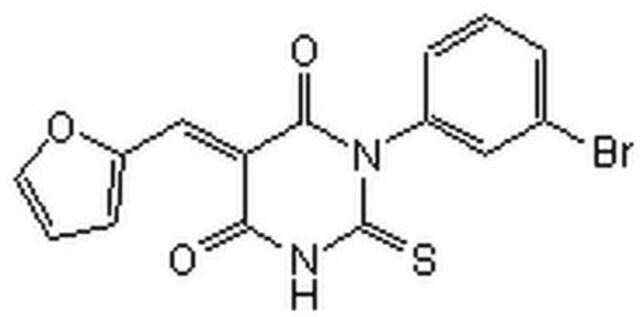J4580
Jasplakinolide
≥97% (HPLC), film (colorless), actin polymerization promoter
Synonym(s):
Jaspamide
About This Item
Recommended Products
product name
Jasplakinolide, ≥97% (HPLC)
Quality Level
Assay
≥97% (HPLC)
form
film (colorless)
color
off-white to beige
solubility
DMSO: >2 mg/mL
shipped in
wet ice
storage temp.
−20°C
SMILES string
C[C@H]1C[C@@H](C)\C=C(C)\C[C@H](C)C(=O)N[C@@H](C)C(=O)N(C)[C@H](Cc2c(Br)[nH]c3ccccc23)C(=O)N[C@H](CC(=O)O1)c4ccc(O)cc4
InChI
1S/C36H45BrN4O6/c1-20-15-21(2)17-23(4)47-32(43)19-30(25-11-13-26(42)14-12-25)40-35(45)31(18-28-27-9-7-8-10-29(27)39-33(28)37)41(6)36(46)24(5)38-34(44)22(3)16-20/h7-15,21-24,30-31,39,42H,16-19H2,1-6H3,(H,38,44)(H,40,45)/b20-15+/t21-,22-,23-,24-,30+,31+/m0/s1
InChI key
GQWYWHOHRVVHAP-DHKPLNAMSA-N
Application
Biochem/physiol Actions
Storage Class Code
11 - Combustible Solids
WGK
WGK 3
Flash Point(F)
Not applicable
Flash Point(C)
Not applicable
Certificates of Analysis (COA)
Search for Certificates of Analysis (COA) by entering the products Lot/Batch Number. Lot and Batch Numbers can be found on a product’s label following the words ‘Lot’ or ‘Batch’.
Already Own This Product?
Find documentation for the products that you have recently purchased in the Document Library.
Customers Also Viewed
Articles
High titer lentiviral particles including beta-actin, alpha-tubulin and vimentin used for live cell analysis of cytoskeleton structure proteins.
Our team of scientists has experience in all areas of research including Life Science, Material Science, Chemical Synthesis, Chromatography, Analytical and many others.
Contact Technical Service